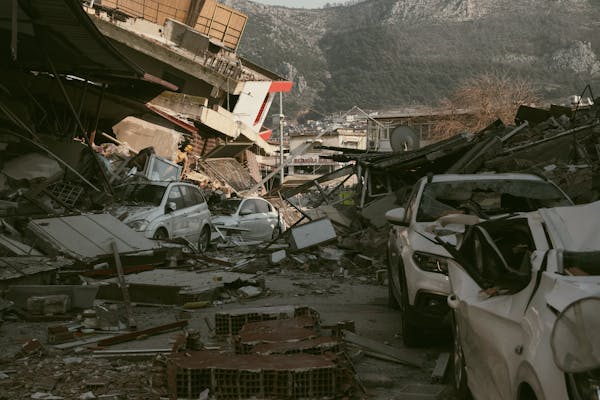The Red Sismológica Nacional de Costa Rica (RSN), also known as the National Seismological Network of Costa Rica, is a cornerstone of the country’s earthquake preparedness and mitigation efforts. Established in 1971, the RSN is a vital institution that monitors seismic activity throughout Costa Rica, providing crucial data for research, risk assessment, and public safety.
A Robust Network of Seismic Stations
The RSN boasts a comprehensive network of seismic stations strategically positioned across Costa Rica. These stations are equipped with highly sensitive instruments that continuously record ground vibrations, allowing for the detection and characterization of earthquakes. The network includes:
- Volcano Observatories: Dedicated stations situated near active volcanoes, providing real-time monitoring of volcanic tremors and potential eruptions.
- Regional Stations: Strategically placed throughout the country to capture seismic activity from a wider area.
- Strong Motion Stations: Located in densely populated regions to measure strong ground shaking during earthquakes, crucial for assessing potential damage.
The RSN’s network is constantly being expanded and upgraded to ensure the most comprehensive coverage possible. This ongoing development guarantees the collection of high-quality seismic data, essential for accurate earthquake detection and analysis.
Real-Time Earthquake Monitoring and Data Dissemination
The RSN operates a 24/7 monitoring center staffed by a team of experienced seismologists and technicians. Seismic data from the network is continuously streamed to the center, where it is analyzed in real-time using advanced software. This allows for the rapid detection of earthquakes, enabling the RSN to:
- Issue Timely Earthquake Alerts: The RSN promptly disseminates earthquake alerts to relevant authorities, emergency response teams, and the public. These alerts include vital information such as the earthquake’s location, magnitude, and potential impact.
- Disseminate Seismic Data: The RSN shares seismic data with national and international scientific institutions. This data is critical for earthquake research, leading to a better understanding of seismic activity in Costa Rica and the wider region.
- Maintain Public Earthquake Catalog: The RSN meticulously maintains a comprehensive catalog of all earthquakes detected in Costa Rica. This catalog serves as a valuable resource for scientists, engineers, and policymakers.
The RSN’s real-time monitoring and data dissemination capabilities are instrumental in mitigating the risks associated with earthquakes. By providing timely and accurate information, the RSN empowers stakeholders to take appropriate actions to safeguard lives and property.
Public Education and Outreach
The RSN recognizes the importance of public awareness and preparedness for earthquakes. They actively engage in public education and outreach programs to:
- Disseminate Earthquake Safety Information: The RSN provides the public with educational materials and resources on earthquake safety measures. This includes guidance on earthquake drills, safe havens during earthquakes, and emergency preparedness steps.
- Organize Public Workshops and Trainings: The RSN conducts workshops and training programs for communities, schools, and civil society organizations. These programs equip participants with the knowledge and skills necessary to respond effectively during and after earthquakes.
- Maintain Public Communication Channels: The RSN maintains informative websites and social media channels to keep the public informed about seismic activity and earthquake preparedness.
The RSN’s commitment to public education and outreach empowers Costa Rican citizens to take an active role in earthquake preparedness. By fostering a culture of awareness and preparedness, the RSN contributes significantly to reducing earthquake risks in the country.
Collaboration and International Cooperation
The RSN actively collaborates with national and international organizations to enhance earthquake monitoring and mitigation efforts. This collaboration takes the form of:
- Data Sharing Agreements: The RSN shares seismic data with regional and international seismological networks. This collaborative exchange of data fosters a more comprehensive understanding of regional seismic activity.
- Joint Research Projects: The RSN participates in joint research projects with international institutions, focusing on earthquake prediction, hazard assessment, and mitigation strategies.
- Capacity Building Programs: The RSN shares its expertise and knowledge with other countries in Central America and the Caribbean, contributing to the development of regional earthquake monitoring capabilities.
The RSN’s dedication to international cooperation strengthens earthquake preparedness efforts across the region. By sharing resources and expertise, the RSN plays a vital role in building a more resilient Central America.
The Red Sismológica Nacional: A Beacon of Earthquake Safety
The Red Sismológica Nacional de Costa Rica stands as a testament to the country’s commitment to earthquake preparedness and risk mitigation. Through its robust network of seismic stations, real-time monitoring capabilities, and dedication to public education and international collaboration, the RSN plays a critical role in safeguarding Costa Rica’s citizens and infrastructure. As seismic activity continues to be a natural phenomenon in the region, the RSN’s ongoing efforts are essential for ensuring a safer future for Costa Rica.
Click Now: https://thekansaspost.com/




